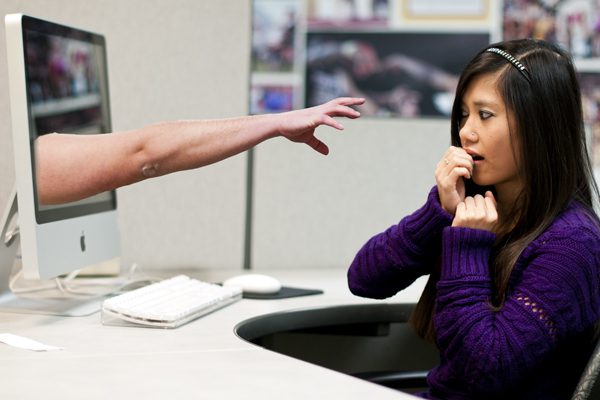
The internet has brought us all closer together than ever before. Never before in our history has mankind been able to communicate so seamlessly. However, in the darker realms of the internet, such freedom is often misused for nefarious purposes.
Cyberstalking is defined as being stalking or harassment towards an individual that is carried out over the internet. Cyberstalking comes in several different forms that range from slander and unwanted messages to death threats and actual physical violence.
Prior to the introduction of social media, harassment was much more difficult due to the lack of obtainable information on a particular person. Nowadays, however, people freely share sensitive information and post pictures of themselves and their families. Hence this makes it much easier for a creep to gather information on their victims or even track them down.
Oftentimes, victims are usually unaware that they’re victims of cyberstalking. Social media such as Facebook and Instagram have made it extremely easy for a stalker to monitor his/her victim from afar without being noticed. Pseudo-celebrities or influencers often welcome such unwanted attention and at times, negative comments or innuendos are in fact used by them to gain further traction.
However, when unwanted or threatening comments are regularly received, then the victim should be aware that a line has been crossed. Perpetrators of cyberstalking tend to be driven by a variety of reasons with the most common being jealousy, revenge, and lust.
With all of that in mind, here’s our guide to how you can protect yourself from becoming a victim of cyberstalking:
- Maintain a low-profile online
The internet exposes us to all kinds of people from all over the world. While most of them are decent folk, a small percentage is up to no good. Hence, it’s often best to keep as low a profile as you can while online.
Avoid sharing information related to your place of employment, hometown, and family. Hackers and stalkers have been known to collect such information in order to make use of it to intimidate or harass their victims. Obviously avoid revealing information such as phone numbers and addresses at all costs.
While we believe in flaunting it if you have it, social media is not really the type of place to share “sensitive” images of yourself or your SO. You’ll never know who could get their hands on such information. As we’ve seen from the 2014 iCloud breach, you’ll never know what may end up on the internet and used against you.
- Keep your software updated
While app and software updates can be bothersome at times, they are extremely critical. Oftentimes they contain important patches that deal with potential security breaches.
Thus, whenever you have an update available, take the extra time to make sure that you get everything updated. After all, it only takes a few minutes and ensures that your privacy remains protected.
- Sanitize yourself
Social media has provided us with a platform to share aspects of our lives with friends and family. However, more often than not folks tend to take things to the extreme and turn Facebook into a political battleground.
Often, you can tell a lot about a person based on what he/she shares on social media. While you may be tempted to add your say, sometimes it’s just better to take the high road. Forget getting into any arguments and leave things as they are.
Posting inflammatory posts that touch on race, religion or politics can be used to hurt you later on by someone who may not agree with you.
If you find yourself being stalked or harassed online, don’t hesitate to block the person and report them to the relevant moderators. Should the harassment escalate faster than a Kentucky Derby horse race, make a police report and take a break off social media? Removing your virtual presence makes it that much more difficult for a stalker to track you down.